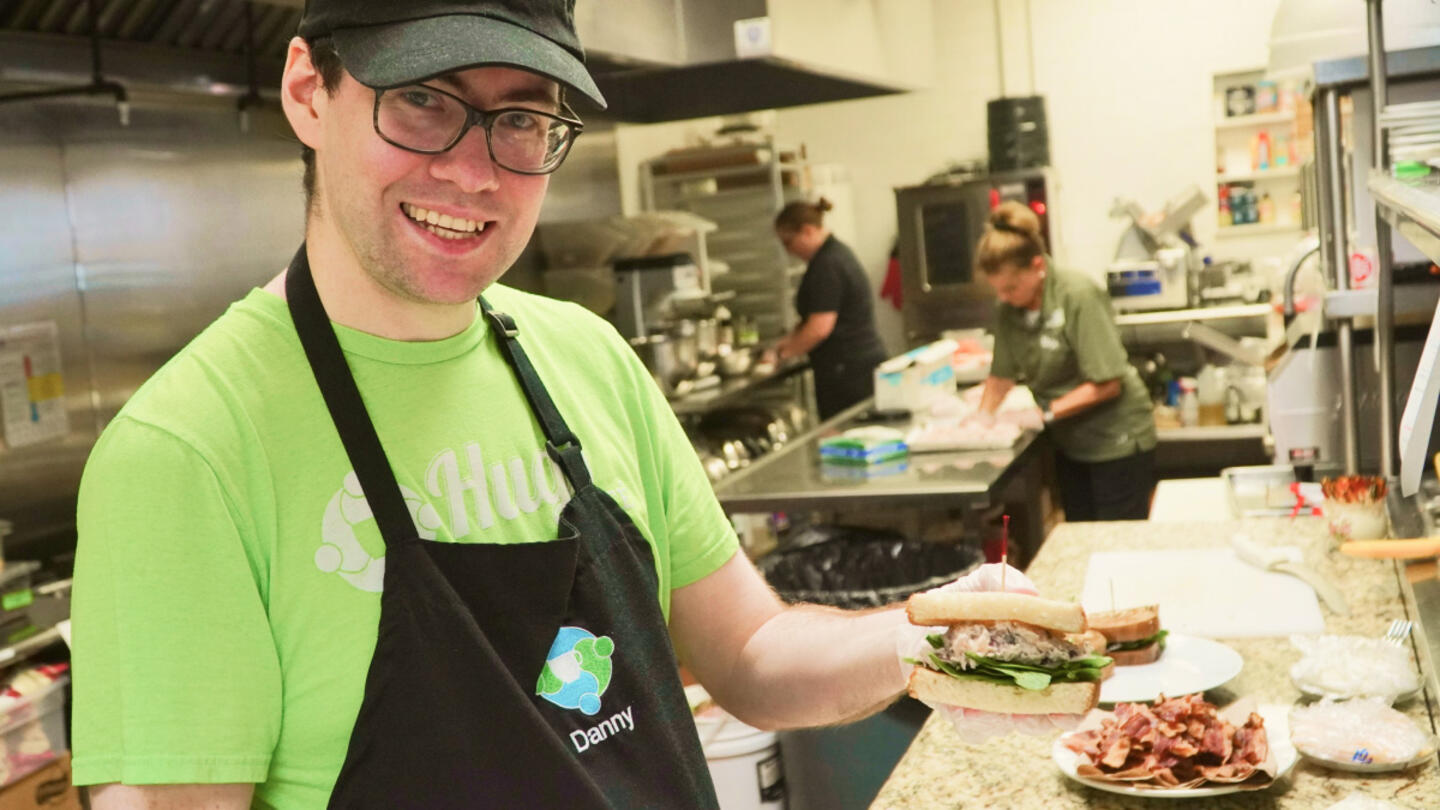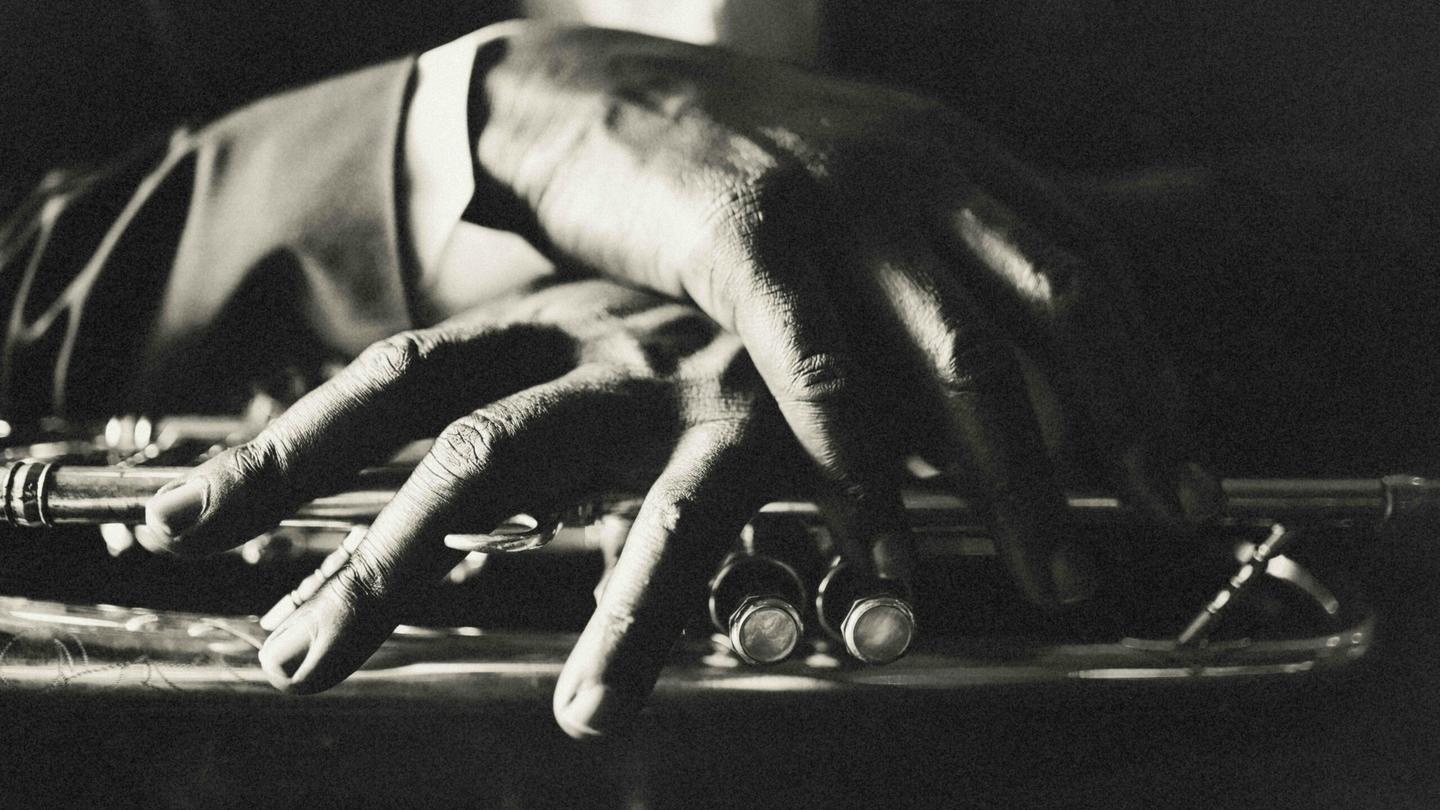We asked Ryan Pitts, Program Officer for Courageous Collaborations at STT, Zack Huffman, Director of Courageous Collaborations, Strategic Initiatives at STT, and Branden Polk, a fellow for Free Speech and Peace at STT, to share their experiences.
As our country celebrates Black History Month, what was your entry point into Black history and leadership? Is there a Black leader who inspired you? And how does that impact how you think about your Stand Together Trust work and diversity, respect, and belonging?
Ryan: I suppose my creation marks my entry point to Black history because to be born Black is a historical mantle to carry regardless of desire. Since birth, the complex heritage of being Black shaped my entire worldview and allowed me to wrestle with ideas such as diversity, respect, and belonging at a very early age.
For many of us, our first role models, friends, and educators are members of our own families who ultimately afford us our first experience of belonging. In my family, there are ministers and misfits, athletes and academics, prosperity and poverty – but regardless of the hodgepodge of characteristics, acceptance of the whole self is never questioned. Through my family's invaluable precedent of belonging, I developed an innate posture of self-respect and respect for others despite shortcomings, mistakes, or frustrating differences.
However, for Black people in America, the belonging and respect we often learn at home isn't always the experience outside those sacred walls. To be Black in America is to wake up daily and navigate a system that was never designed for you to win. Yet, in the best-case scenarios, you witness the invaluable power of diversity within spaces and institutions where the collective exceeds any accomplishment possible from a monolith of individuals.
I have been inspired by Black leadership throughout my life, though I would highlight Nelson Mandela, the Rev. James Cone, and the writer bell hooks as a particularly powerful influence
Throughout my career, I continuously search to optimize the power of the collective. That's why the Courageous Collaborations work at Stand Together Trust is crucial to being the change in the world I want to see. So, as we observe the 36th annual Black History Month, my hope is that you take time to reflect on the rich history and contributions of Black Americans and realize, we're better together.
Zack: My experience with, and knowledge of, Black history began in earnest after high school. My primary and secondary education covered the basics. Still, it didn't do a great job of conveying the fullness of Black history, culture/art, or inculcating a more accurate understanding of the Black experience. Having lived in the South pretty much my entire life, the downstream impacts of slavery, Jim Crow, and segregation could be both felt and observed. It's something that wasn't discussed openly and honestly in many of the spaces I inhabited. During my college experience, and now as an adult, I've more meaningfully engaged with Black history.
That engagement has come in several forms, but Black creators and leaders have been a primary entry point. I'm a lover of literature, art, and ideas, so figures like James Baldwin, Toni Morrison, Frederik Douglass, Nina Simone, August Wilson, and Kehinde Wiley have imparted so much wisdom, beauty, and hard-hitting realities to me as I interacted with their work. They've been hugely important figures for me because their work imparted emotions, context, and knowledge that have helped me show up as a more understanding and an impactful citizen and social change advocate.
I was brought into both the beauty and pain of Black jazz musicians in Harlem when I read Another Country by James Baldwin. Toni Morrison's novels connected me to generations of Black women who have demonstrated incredible resilience and courage in the face of oppression. Nina Simone helped me see what it means to really be an artist when she said, "an artist's duty is to reflect the times." Frederick Douglass' essays and letters outlined how we can fulfill the promise of American principles and ideals for people and communities of color that have been denied them for generations. And the painter Kehinde Wiley has demonstrated with jaw-dropping beauty what it means to reclaim an artistic tradition that for far too long did not feature or celebrate the beauty in Blackness.
It's through these brilliant creators and leaders that I've only begun to fully appreciate what Black history means. There is a legacy of oppression and injustice that this country cannot ignore or leave unaddressed, but there's also immense power, resilience, and beauty in the story of Black America that should be appreciated not just in February, but every day.
Sign up for the Strong & Safe Communities newsletter for stories, ideas, and advice from changemakers working with their neighbors to address the biggest problems we face.
Branden: In answering this question, I think in terms of music, food, education, and faith.
Anita Baker, Luther Vandross, Aretha Franklin, Smokey Robinson, the Four Tops, the Supremes, and Run-DMC. Imagine me, using the coffee table as my stage during family gatherings, loudly singing "Ain't Too Proud to Beg" by the Temptations: "I know you wanna leave me, but I refuse to let you go. If I have to beg and plead for your sympathy, I don't mind, 'cause you mean that much to me … " And the song goes on.
Southern fried chicken, collard greens with ham, macaroni and cheese, potato salad, and smoked barbeque ribs. I remember standing in the kitchen with my grandmother (my mother's mother) as she taught all her grandchildren how to make dinner rolls, strawberry preserves, and vanilla pound cake from scratch.
Hampton University, Howard University, Norfolk State University. These are all Historically Black Colleges and Universities where my family has roots; where we learned the value of public service; where I learned the value of teachers, lawyers, social workers, artists, and preachers.
The Black church in my hometown. The source of hope in times of personal crises. It's where I learned to pray, where I learned to sing, and where I learned to dream … because it was the first place that I heard Dr. King's dream.
All these things were normal to me. I didn't see them exclusively as aspects of Black culture as a child. I knew that as Black people, we made the music, the food, and the faith available to everyone. It wasn't until my parents talked to me about two things that I became aware of the unique existence and relevance of Black culture. Number one: "Always keep your hands at 10 and 2 when being pulled over by the police. Always do as you're told and never raise your voice." Number two: "In order to be successful as a Black person in this country you will need to work twice as hard, more than any of your white peers."
Black History Month isn't just a time of celebration of achievements by Black people. I am forever changed by the works of Toni Morrison, August Wilson, Ntozake Shange, Nikki Giovanni, James Baldwin, Susan Lori Parks, Spike Lee, Dizzy Gillespie, Savion Glover, Richard Pryor, Sydney Poitier, Alvin Ailey, Beyoncé, and more. I rejoice at their accomplishments. But I needed their creativity, authenticity, and innovation as a Black, gay man to feel inspired, to be filled with hope that one day I could play a role in making things better for us. Not just Black people, but for all of us.
My work at Stand Together Trust comes out of a place of deep care, concern, and audacious hope about Black (American) history. This month is a time to remember the greats – the great music, the great food, and the great faith of Black people. But let us as a community take time this Black History Month to reflect on the reasons why we are here and what is possible when we work together – to combat injustice everywhere and to be champions of liberty and justice for all.
***
Stand Together Trust provides funding and strategic capabilities to innovators, scholars, and social entrepreneurs to develop new and better ways to tackle America’s biggest problems.
Learn more about Stand Together's efforts to build strong and safe communities, and explore ways you can partner with us.

People with disabilities want meaningful work — and Hugs Cafe is making it happen.

At this ‘resort,’ children with intellectual disabilities are seen as gifts to be celebrated and loved.

Veterans experience loss when leaving service. Could this be key to understanding their mental health?

The Grammy-nominated artist is highlighting the stories we don’t get to hear every day.
